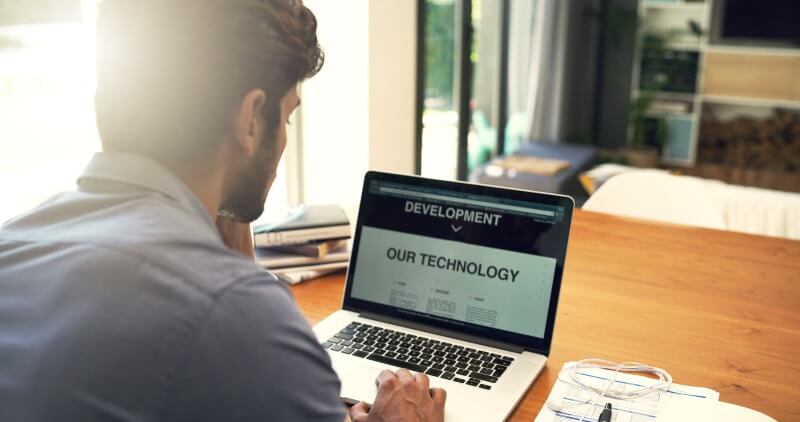Wondering how to calm nerves before an interview quickly and efficiently? You’re in the right place. Nervousness is part and parcel of the interview process. However, there are straightforward tactics to keep your anxiety in check and approach your interview with poise. This article provides practical, actionable advice to help you prepare mentally and physically before your interview, enabling you to feel relaxed and project calm and confidence from the moment you shake hands.
Key Takeaways
- Channel your interview nerves as an advantage; they heighten alertness and can improve performance if managed well.
- Preparation is key; from mastering mindfulness techniques to practicing responses and researching the company, a thorough groundwork builds confidence.
- Employ physical and mental strategies like choosing the right attire, arriving early, balancing nutrition, partaking in relaxation exercises, visualizing success, and setting up a reward system to keep both mind and body primed for the interview.
Understanding Interview Nerves: The Psychological Battle
Remember the last time you felt a surge of nervousness before an interview? Your palms were sweaty, your heart raced, and you felt a tad bit queasy. That’s your body’s primal ‘fight or flight’ mode kicking in, a natural response to the high-stakes game of interviewing. Sure, it feels intense, with all the adrenaline pumping through your veins, readying you for battle. But here’s the kicker: that same adrenaline rush, with its shaky voice and sweaty palms, is also your secret weapon, sharpening your alertness and quickening your thoughts for a great interview.
Now, don’t get it twisted – even the most seasoned pros can feel too much pressure. Interviewing is a human experience, after all. It’s not about erasing those feelings but learning the art of channeling them. Imagine riding the wave of interview nerves instead of being swamped by it; that’s what we’re aiming for here. Grasping this psychological battle equips you better for your next interview.
Mastering Mindfulness: Techniques to Stay Present and Calm

Picture this: You’re about to face a volley of interview questions, but instead of a rapid heartbeat, you’re the embodiment of Zen. How? By becoming adept at mindfulness and slow breathing. Taking deep breaths is like a remote control for your nervous system, helping to slow the heart rate and keep you calm. And when you do feel anxious or like your thoughts are racing faster than a sprinter, mindfulness meditation is the anchor that brings you back to the present moment.
Now, if the thought of meditating makes you say “not my cup of tea,” hold on. There’s a whole suite of mindfulness tactics, from the ‘Breathing Waltz’ to the body scan, that are as easy as pie and effective as a Swiss army knife. And guess what? There’s an app for that too. A plethora of digital aids can guide you through these techniques, making staying calm a breeze no matter where you are.
Structured Preparation: Laying the Foundation for Confidence

Ever heard the saying “Fail to prepare, prepare to fail”? It’s a cliché because of course it’s true, especially when it comes to interviews. Structured preparation is the bedrock of confidence. It’s about more than just knowing your stuff; it’s about feeling at home in the interview chair.
Preparation encompasses more than just anticipating the questions; it involves crafting responses that will leave interviewers impressed. It’s the difference between stumbling through a minefield and dancing across a stage.
Researching the Company
Dive headfirst into your job search by becoming a super sleuth on the company you’re interviewing with. Impressing the hiring manager with your knowledge is one aspect, but the primary focus should be to align your career goals with the company culture and values. When you can speak to how your personal mission fits with theirs, it’s like finding the missing piece of a puzzle – and it shows.
Don’t just stop at the company’s About page. Go the extra mile to check out employee reviews on Glassdoor or catch up on their latest headline news-making project. This kind of research not only reduces interview anxiety but also arms you with insightful questions, making you confident so you stand out from the crowd of other candidates seeking other jobs.
Anticipating Key Questions
Imagine being able to predict the future. Well, in interviews, you kind of can. Anticipating key questions is like having a crystal ball that puts your mind at ease. Crafting answers to classics like “Tell me about yourself” lets you paint a picture of who you are, beyond what’s on your resume. And when you’re prepared to talk about how you handle pressure, you’re showing not just that you can survive the heat but that you can thrive in it.
This isn’t about memorizing a script; it’s about finding your voice. When you anticipate what’s coming, you can listen and respond with authenticity and ease. It’s like knowing the chords to a song, so when it’s time to play, you can riff with confidence and maybe even enjoy the tune.
Role Play Practice
Let’s talk about flexing your conversation muscles through role play. Consider it a rehearsal that allows you to practice and perfect your responses. Grab a friend or family member and run through the questions you’ve prepared. They’ll toss curveballs at you, and you’ll learn to knock them out of the park, all while refining your problem-solving and communication skills.
Feedback is the breakfast of champions, and role-play gives you a buffet of it. Role-play provides an opportunity to refine your tone, modify your responses, and become a better listener – skills that will be invaluable on the day of the interview.
The Art of Positive Self-Affirmation

Ever faced a mirror and told yourself, “You’ve got this”? That’s the essence of positive self-affirmation. Positive self-affirmation is a way to train your mind to concentrate on success and believe in your capabilities. Scientifically speaking, affirmations light up the brain like a Christmas tree in areas associated with self-esteem and reward. But remember, the key is to keep it real and make it personal. Your affirmations should be your truth, echoing your values and your identity.
Before you start affirming, take out the trash – that’s the negative self-talk, by the way. Replace it with a hefty dose of gratitude and self-compassion, and watch as stress takes a backseat. Building a fortress of resilience within yourself helps to shield against the arrows of self-criticism and negative thoughts. And while affirmations aren’t a magic cure, they’re a powerful ally in your mental health toolkit.
Dress for Success: Outfit Choices That Empower
Think of your interview outfit as your armor. The aim is not just to look good but to feel powerful. Studies have shown that what you wear can influence your confidence as much as it influences the first impression you make. So, choose an outfit that’s a notch above the company’s daily wear, but that also feels like you. The aim is to strike a balance between professional and personal style for a boost of self-confidence.
And here’s a pro tip: lay out your outfit the night before. By sorting out the sartorial details ahead of time, you’re free to focus on the more pressing career matters at hand – like answering those interview questions with poise.
The Power of Punctuality: Arriving With Time to Spare
Let’s talk timing. Arriving early for your interview isn’t just about making a good first impression; it’s about giving yourself a moment to breathe. Aim to be there five to ten minutes beforehand – it’s the sweet spot that says, “I respect your time and mine” without being overeager. But beware, rolling up too early can be as awkward as showing up late, so keep it cool.
Use those precious pre-interview minutes to review your notes, practice some deep breathing, and get comfortable with your surroundings. It’s like arriving early at the theater, settling into your seat, and waiting for the curtain to rise.
Nourish Your Body and Mind: Eating Right Before the Interview

Let’s talk fuel. Just as you wouldn’t run a marathon on an empty stomach, you shouldn’t tackle an interview without the right nutrients to power your brain. Think whole grains for long-lasting energy and lean protein to keep you grounded. Avoid the energy crash that comes with a sugar high, and instead opt for a balanced meal that will see you through the marathon of interview questions.
Time your meal about 90 minutes before the interview to give your body a chance to get into gear without any digestive distractions. And if the thought of eating a full plate makes you queasy, a small snack like nuts or fruit can be your backstage pass to keeping your energy up without weighing you down.
Physical Relaxation Techniques

Now, let’s focus on the physical side of things. When your body is tense, it can throw your game off. Enter the world of relaxation techniques – your go-to for melting away pre-interview tension. Start with deep breathing: inhale slowly and deeply through your nose, hold for a moment, and exhale through your mouth. Think of it like deflating a balloon of stress, one breath at a time.
Regularly folding these exercises into your routine builds a foundation of calm that you can call upon when the pressure mounts. By the time you’re waiting in the lobby, you’ll be as cool as a cucumber, ready to greet your interviewer with a relaxed smile.
Visualization and Mental Rehearsal
Have you ever daydreamed about nailing an interview? That’s a form of visualization, and it’s a technique used by pros from all walks of life – from athletes to CEOs. In fact, job seekers who practice visualization are three times more likely to land a job within two months. The essence of visualization is to envision success before it occurs, programming your mind to anticipate positive outcomes.
When you visualize, go through the entire job interview process in your mind’s eye, from shaking hands with the interviewer to delivering your answers with finesse. This mental run-through builds a sense of familiarity and comfort, which translates into real-life confidence during the actual interview.
Creating a Post-Interview Reward System
Ever bribed yourself with the promise of ice cream to get through a tough workout? That’s the idea behind a post-interview reward system. Planning a treat for after the interview gives you a light at the end of the tunnel, a little extra push to perform your best. Whether it’s a fancy dinner or a movie night, the anticipation of the reward can help take the edge off the pressure cooker of interview stress.
And the beauty of this system is that it’s totally customizable. You can scale your rewards to fit your taste and your budget, making the whole interview experience not just bearable but something you might actually look forward to.
Harnessing Nervous Energy: Turning Anxiety into Enthusiasm
Feeling the jitters? Let’s flip the script. Instead of dreading that nervous energy, learn to embrace it as excitement. Studies show that when people reframe their anxiety as excitement, they perform better under pressure. It’s a bit like convincing yourself to enjoy a rollercoaster – a little self-talk goes a long way.
Next time you feel nervous, say it out loud: “I’m excited!” Feel your heart rate as anticipation, your sweaty palms as eagerness, and watch as your nerves transform into a powerful force of enthusiasm.
Day-Before Strategies for a Good Night’s Sleep
The night before the big day can feel like the longest night ever. But, with the right strategies, you can turn it into a restful prelude to your success. Create a calming bedtime ritual – whether that’s a hot shower, a cup of chamomile tea, or a chapter of a good book – to signal to your body that it’s time to power down.
Avoid caffeine and screen time before bed, and try to make your sleeping environment as peaceful as possible. A good night’s sleep is the ultimate preparation, leaving you refreshed and ready to take on the world – or at least the interview room.
Last-Minute Calm: Quick Tips to Ease Jitters Just Before the Interview
It’s down to the wire, minutes before the interview, and your heart’s doing somersaults. Time for some last-minute calm. Here are a few things you can do to help calm your nerves:
- Practice short, focused breathing exercises to anchor yourself and prevent shaky hands.
- Visualize success and recall past wins to boost your confidence.
- Give yourself a mini pep talk to reinforce your strengths and abilities.
If you’re feeling wound up due to a stressful event, step outside for a breath of fresh air or a brisk walk. These simple actions can clear your mind and help you relax, ensuring you walk into the interview room with a calm, collected mindset.
Summary
And there you have it – a full spectrum of strategies to tackle interview nerves head-on. From understanding the root of anxiety to embracing the power of punctuality, you’re now equipped with an arsenal of techniques to help you stay calm and rock your next interview. Just remember, it’s about transforming those butterflies into a performance that’ll land you an encore. So go ahead, take a deep breath, and step into the spotlight. Your moment awaits!
Frequently Asked Questions
Do interviewers care if you’re nervous?
Interviewers understand that it’s natural to feel nervous, and as long as you can recover and leave a positive impression, it won’t be a major issue. They are more interested in seeing how you handle yourself under pressure. So, take a deep breath, speak slowly, and show them your best self.
Why do I get so nervous for interviews?
Interview anxiety is common because of the pressure of meeting strangers in positions of authority, talking about yourself, and the worry of being judged on various aspects like appearance and demeanor. It’s natural to feel nervous, but preparing for the job interview by researching the organization and its industry and using other tips above can help alleviate some of that anxiety.
How can I quickly calm my nerves right before the interview starts?
Take deep breaths, visualize success, and use grounding techniques to stay present and calm. It’s normal to feel some nervousness prior to your job interview, and it can even help boost your performance. Good luck!
What should I eat before the interview to ensure I’m energized but not uncomfortable?
You should eat a balanced meal with whole grains and protein, or a light snack like nuts or fruit, about 90 minutes before the interview to ensure you’re energized but not uncomfortable. Avoid heavy or greasy foods that could make you feel sluggish.
Can positive affirmations really help improve my job interview performance?
Yes, positive affirmations can really help improve your interview performance by boosting your confidence and self-esteem, so it’s worth giving them a try. Be genuine and tailor your affirmations to match your personal values.


